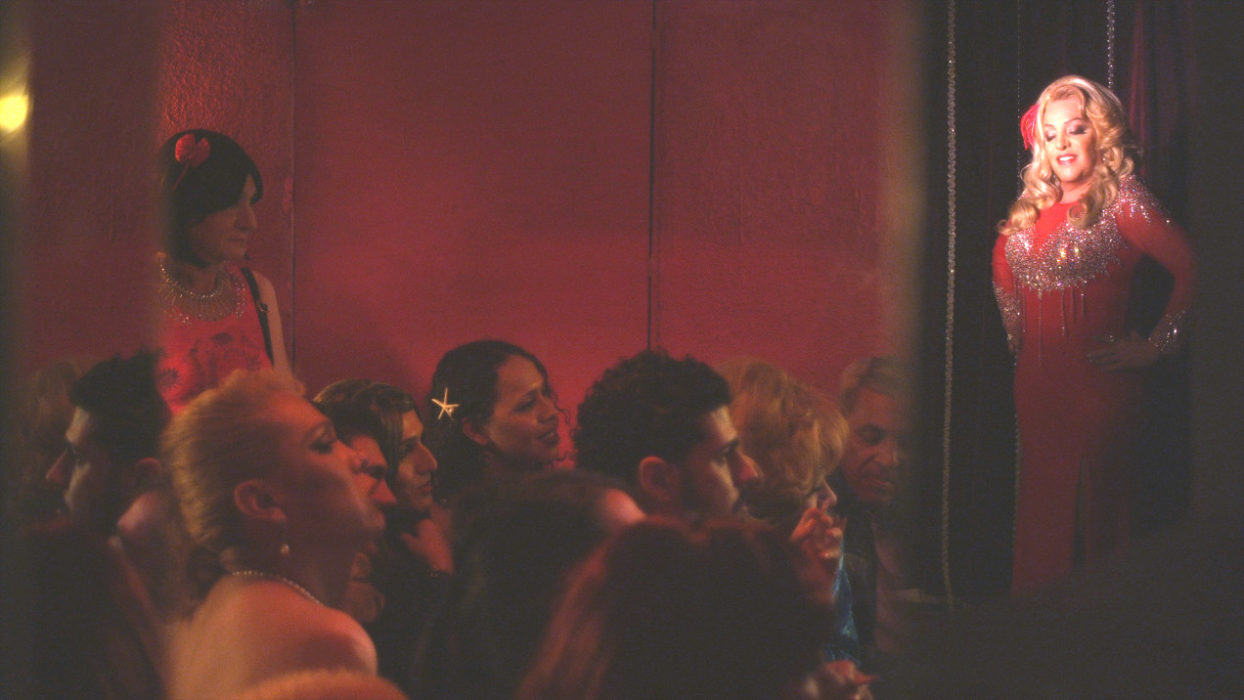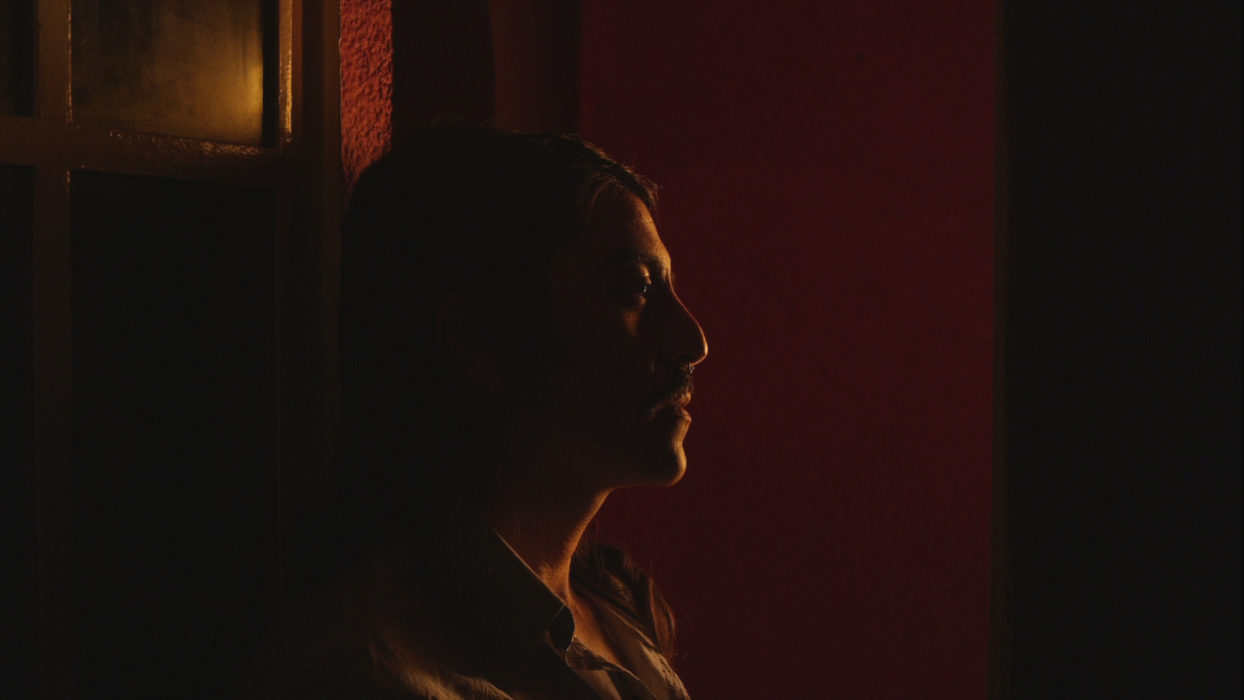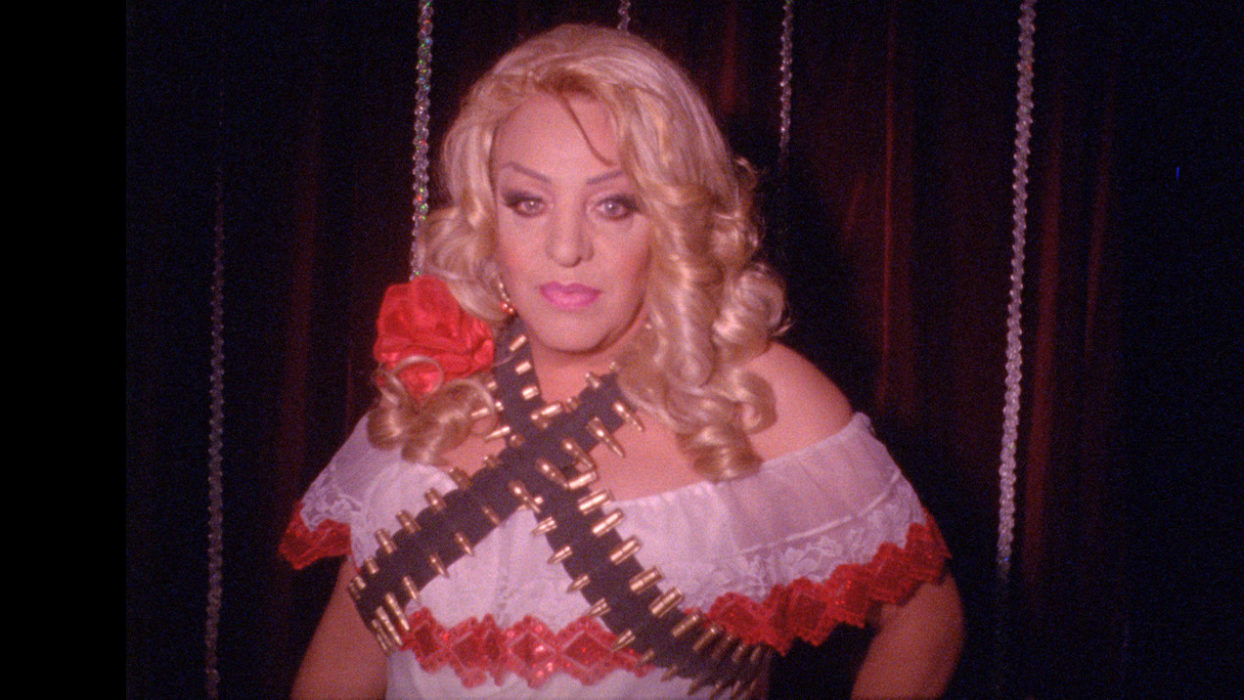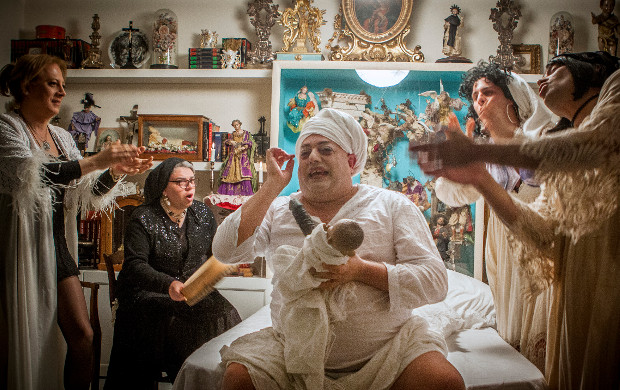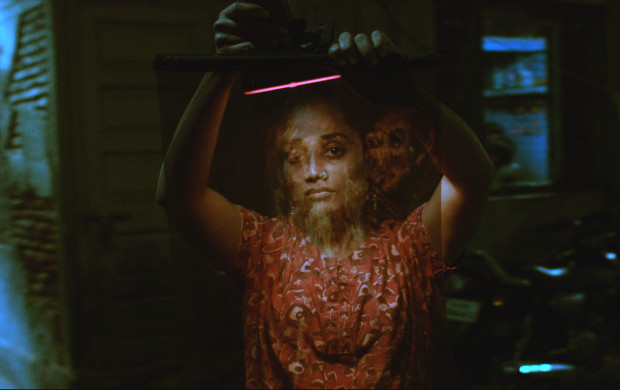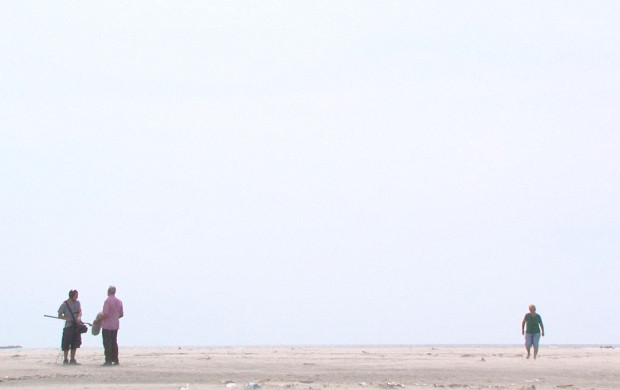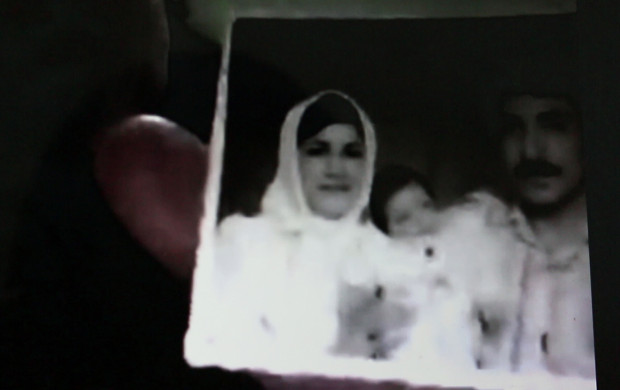Casa Roshell
- 2016
- Mexico; Chile
- 71 minutes
- Spanish
The fictionalised chronicle of a small transformist cabaret in Mexico City – a place of trans activism but also a haven of peace for men from diverse backgrounds who come to watch, cruise, learn how to dress up.
Roshell and Lili, both well into their forties, run a small transformist club in Mexico City, where men of all ages and backgrounds come to watch, cruise or learn how to dress in drag. With dialogues based on lengthy audio recordings and the filmmaker’s sustained relationship with the transgendered people at this tiny cabaret, the film eschews the sensational angle. Instead, it settles in the corner of a changing room at the most ordinary moments of costume changes or making-up, or it renders the anxious wait of a girl on the staff who is clearly infatuated with one of the regulars. Lili even runs a therapy-based personality workshop. Knowing how to walk on stiletto heels or “make an X with our T-shaped male body” means knowing how to reinvent oneself and perhaps, one day, fully assume this identity. The form of the film goes along with the feeling that here seduction has the right to remain light-hearted (“Shall we go to the dark room? – I don’t think so, darling…”) and that categories are of little importance (“You aren’t gay,” one customer is told, “we’re another type of woman…”). The fluid approach of Camila José Donoso is one of a frictionalized reality and utterly faithful to what Lili, in front of her apprentice-transvestites, calls the “eighth commandment”: “thou shall not put on a fake voice”. Viewing this milieu
calmly and obviously enjoying conveying that it has recently been legalised, the filmmaker has found the right tone, never contrived. (Charlotte Garson)
- Production : Juan Pablo Bastarrachea; Maximiliano Cruz
- Editing : Camila José Donoso
- Sound : Isolé Valadez; Mauricio Flores
- Photography : Pablo Rojo
